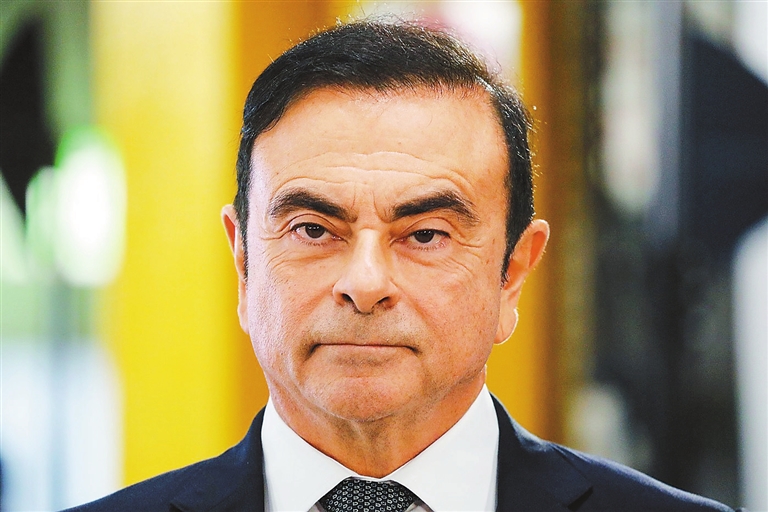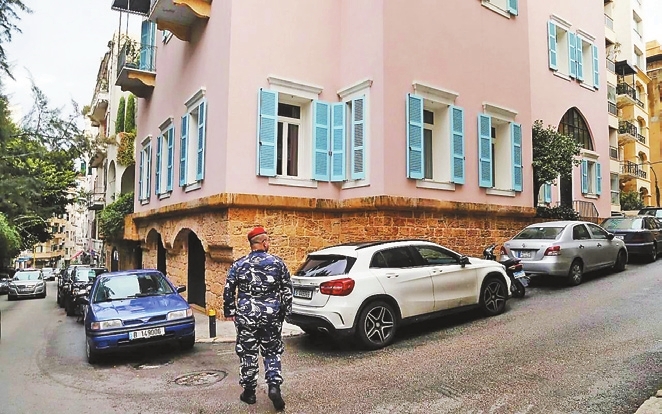

BY the time most of Japan had woken up Tuesday, he was gone. One of the country’s most famous criminal suspects had slipped past the cameras trained on his house, past the police and border guards and the Japanese citizens who for the past year have followed his every move. Carlos Ghosn, the deposed chief of the Nissan and Renault auto empire facing charges of financial wrongdoing, had fled to Lebanon, and no one in Japan — not the authorities, the media or even the auto executive’s own lawyer — could explain how it had happened. It was a cinematic escape, carried out just before New Year’s Day, Japan’s most important holiday, when government agencies and most businesses close for as long as a week. Ghosn is believed to have been smuggled out inside a case for a musical instrument. He reportedly organized a concert at his Tokyo property to dodge detectives who had been watching him for nine months, before making his way to Lebanon via two private jets. It means the 65-year-old will now avoid a blockbuster criminal trial for corruption which had been due to start in April — and makes him the most high-profile white-collar fugitive in global history. In a statement issued after he arrived in Lebanese capital Beirut, Ghosn attacked the Japanese justice system, claimed he had been the victim of political persecution and vowed to tell his story to the world’s media next week. He said: “I am now in Lebanon and will no longer be held hostage by a rigged Japanese justice system where guilt is presumed, discrimination is rampant, and basic human rights are denied. “I have not fled justice — I have escaped injustice and political persecution.” Many details of the escape remain unclear. However, Lebanese TV station MTV reported that a Gregorian band played a Christmas concert for Ghosn at his apartment in Japan, before he was spirited away in one of their larger instrument boxes in a plot masterminded by his wife Carole and supported by ex-special forces soldiers. He is thought to have boarded a chartered Bombardier jet from an airport in Osaka to Istanbul, landing in Turkey at 5:30 a.m. local time Monday. He is thought to have then switched to another plane which took off 40 minutes later bound for Rafic Hariri Airport in Beirut. The escape follows a stunning fall from grace for Ghosn, who rose to become the car industry’s most powerful executive and united Japanese firms Nissan and Mitsubishi with French company Renault in a global alliance. After almost two decades of untrammeled power during which he became a superstar in Japan, amassed a US$120 million fortune and even had a comic book written about him, Ghosn was suddenly arrested in late 2018 and accused of taking millions of pounds in secret payments from his company. The executive — who was born in Brazil but raised in Lebanon from the age of 6 — was locked up in Tokyo Detention Center for more than 100 days and reportedly grilled by investigators for 14 hours at a time as they sought in vain to extract a confession before he went to trial, in a country which has a 99 percent conviction rate. He was eventually released on bail in March 2019 following the payment of a record US$14 million bond, which will now reportedly be confiscated. Ghosn’s escape is all the more remarkable given the strict conditions under which he was placed after his release. The tycoon was shadowed at all times by police, prosecutors and a private detective while out in public. A 24-hour surveillance camera was installed at the entrance of his apartment, he was prohibited from accessing the Internet and using email, and he was for a long time forbidden from communicating with his wife — the two did not speak a word to each other for seven months. In a previous interview with The New York Times, 53-year-old Lebanese national Carole Ghosn said the authorities at one point confiscated her phones, passport, diary and letters she had written to her husband while he was in jail. She said that a woman from the prosecutors’ office followed her into the bathroom and when she stepped out of the shower, the woman handed her a towel. Carole Ghosn added: “They wanted to humiliate me and my husband. I was treated like a terrorist... like I had a bomb on me.” Ghosn had three passports issued by Lebanon, France and Brazil. All were confiscated on his arrest and are still being held by his lawyers in Japan, who insist they played no part in his flight. Selim Jreissati, Lebanon’s state minister for presidential affairs, told local press that Ghosn landed legally with a French passport and Lebanese ID. Jreissati said he had previously pressed the Japanese to hand Ghosn over for trial in Lebanon in accordance with international anti-corruption laws. On Tuesday, a handful of police and private security guards were stood outside Ghosn’s US$15 million pink mansion in the exclusive Beirut neighborhood of Achrafieh. The businessman has become a folk hero in Lebanon — where he is also an investor in the premium Ixsir vineyard — and is seen as a victim of cruelty and injustice. Lebanese television host Ricardo Karam, a friend of the fugitive, said: “He is home. It’s a big adventure.” When the charges against him were first announced, his face appeared on billboards all over Beirut with the message “We are all Carlos Ghosn” as a gesture of support. Born in Brazil on March 9, 1954 to Lebanese parents, he was reportedly able to distinguish types of cars at the age of 5 just by the sound of their horns. At the age of 6, he went to live in the Lebanese capital Beirut with his mother and attended a Jesuit high school there. Later he moved to Paris where he picked up degrees at two of France’s most elite schools, including the Polytechnique engineering university. His Portuguese, Spanish, Italian, French and English are fluent. Ghosn has long stood out among the world’s auto executives as a hard-nosed workaholic willing to take drastic measures to get companies back on their feet quickly. Ghosn began his career with the tire-maker Michelin and, after an early stint in Brazil, was quickly promoted and earned a reputation for turning around its North American operations. From there, he was recruited by Renault in 1996 to work alongside then-CEO Louis Schweitzer, where he helped return the company to profitability by making the former state-owned carmaker leaner and more efficient. Just three years later, he was sent to head the newly acquired Nissan group with the challenge of doing the same thing within two years. He managed it within one. The performance made him a hero in Japan, where the suave businessman is known for always being up before dawn after just six hours of sleep a night. Ghosn’s arrest in late 2018 has put Japan’s often harsh justice system under international scrutiny. The charges Ghosn faces include under-reporting his income from Nissan for eight years through to March 2018 and of transferring a loss-making private derivatives contract to a Nissan account. He is also accused of paying US$14.6 million in company funds to a Saudi Arabian businessman in a deal that was not sanctioned by Nissan. The fourth charge is that he ordered a Nissan subsidiary in the United Arab Emirates to pay US$10 million to a distributor in Oman and to have US$5 million of that total subsequently transferred to an account at a Lebanese investment firm that Ghosn effectively owns. The charges Ghosn faces carry a maximum penalty of 15 years in prison. Ghosn has denied all the allegations and insisted his arrest was part of a politically motivated coup as he sought to further integrate Nissan and Renault. Ghosn’s former top aide Greg Kelly, 63, has also been awaiting trial on similar misconduct charges and remains in Tokyo. Ghosn’s lead defender Junichiro Hironaka — known as “the Razor” for his sharp legal arguments — said Tuesday he last saw his client on Christmas Day. “Maybe he thought he would not get a fair trial. I don’t blame him for thinking that way,” he said. “It would have been difficult for him to do this without the assistance of some large organization.” (SD-Agencies) | 
